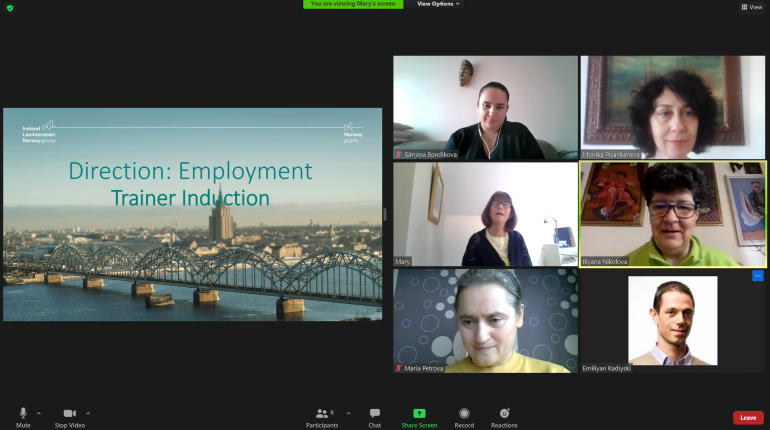Direction Employment, funded by the EEA and Norway Grants Fund for Youth Employment is an innovative training model for vulnerable young people, which aims to enhance their employability in competitive, high-technology industries.
To ensure that the Direction Employment model of youth education for IT roles in Europe, an induction training programme has been developed for trainers on the programme. This induction places the DE model in the context of youth unemployment which sits side by side with a significant IT skills shortage in Europe. In addition, many European countries are only starting on a journey of building diversity and inclusion into their education, social and employment practices. Direction Employment seeks to address this by including specific content on this topic in the training programme, and ensuring that trainers and collaborating employers are also informed about the human rights issues, and of the benefits of having a diverse and inclusive workforce.
A very successful training induction session was held for the Bulgarian trainers in March 2020. The value of this event was appreciated by all participants, and they left with a clear understanding of the potential of Direction Employment to impact the future of unemployed youth in Bulgaria, and the marginalised, discriminated against groups alike.
The Irish partner, DMC Metrix, described the huge shortages in IT skills in Europe and showed that the future demand for jobs in the IT sector would remain strong for the foreseeable future. This project comes at an ideal time to meet the needs of this shortage. To address youth unemployment in an inclusive manner, we can also improve the diversity and inclusion of the population as a whole. Reducing youth unemployment in Europe is a key objectives of the European Commission, and there is a particular imperative to support the group that we call NEET (neither in education, employment or training).
The Bulgarian tutor, from training and software development company, Vola, explained that involving employers from an early stage to participate in curriculum design and encourage their continued involvement in training will ensure that graduates hit the road running with the right skills when they graduate. He also pointed out that it is important to select the right trainees, and in his experience, trainees who commit to long term training will put more effort in and are more likely to be successful. Vola’s target group is between 17 – 29 years old, and given the IT skills shortage, and the fact that IT sector jobs pay about twice the national average, they feel there will be a strong demand for places on his courses.
All in all, the induction event was a success and bodes well for further such sessions in other partner countries, as they proceed with their training recruitment and delivery.
